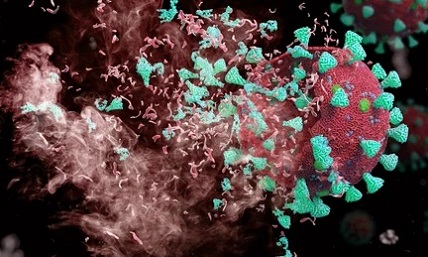Nikhil Prasad Fact checked by:Thailand Medical News Team Feb 09, 2025 2 months, 4 days, 15 hours, 35 minutes ago
Medical News: Researchers from the Virology Section of the Microbiology Laboratory Services at the Hospital Universitario Central de Asturias in Spain, along with experts from Biochemical Research A.E.I.E. in Asturias and the Valsé Pantellini Foundation, have found that Potassium Ribosate may have the ability to interfere with the replication of the SARS-CoV-2 virus. Their study suggests that this compound, previously investigated for its role in cancer treatment, could also reduce the viral load of the virus responsible for COVID-19.
 Potassium Ribosate Shows Potential in Inhibiting SARS-CoV-2 Replication
Investigating the Effects of Potassium Ribosate on the Virus
Potassium Ribosate Shows Potential in Inhibiting SARS-CoV-2 Replication
Investigating the Effects of Potassium Ribosate on the Virus
In an effort to assess the effectiveness of Potassium Ribosate in controlling SARS-CoV-2, researchers conducted laboratory experiments using 26 different viral strains. The viruses were cultured in Vero E6 cells, a standard method used for testing antiviral properties. The study involved administering Potassium Ribosate at a concentration of 125mM, either 24 hours before infection or immediately after virus inoculation.
This
Medical News report highlights that after seven days of observation, researchers measured the viral load using RT-qPCR and cytopathic effect (CPE) analysis. Their findings showed that Potassium Ribosate significantly reduced viral replication in 50% of pre-treated samples and in 61.5% of samples that received the treatment after infection. Furthermore, a strong response was observed in nearly 40% of the strains tested, with some experiencing a complete halt in viral activity.
Understanding the Mechanism of Action
Although Potassium Ribosate is not classified as an antiviral drug, scientists believe it could play a crucial role in limiting the spread of SARS-CoV-2 within the body. The compound appears to act by stabilizing genetic structures known as G-quadruplexes, which are present in both human DNA and the viral RNA of SARS-CoV-2. By strengthening these structures, Potassium Ribosate may prevent the virus from efficiently replicating and spreading within host cells.
Additionally, previous research has suggested that potassium itself serves as an important regulator of cellular metabolism. Scientists theorize that Potassium Ribosate could enhance the cell’s natural defenses, making it more resistant to viral infection.
Promising Results but Further Research Needed
The study’s results indicate that Potassium Ribosate can reduce SARS-CoV-2 replication in cell cultures, showing its potential as a supportive treatment against COVID-19. However, researchers caution that these findings are based on laboratory experiments and further studies, including animal and human trials, are needed to confirm its safety and effectiveness in real-world applications.
If future studies validate these results, Potassium Ribosate could be developed as a treatment that works alongside existing antiviral therapies or vaccines. It may help to reduce the severity of COVID-19, particularly
in individuals with weakened immune systems or those at higher risk of severe illness.
Conclusion
The discovery that Potassium Ribosate can interfere with SARS-CoV-2 replication opens new possibilities for alternative treatments. While more research is required to determine its full potential, this study highlights an innovative approach to tackling the virus using a compound that has already shown promise in other medical applications. By enhancing cellular defense mechanisms, Potassium Ribosate could offer a novel way to slow down viral replication, potentially reducing the spread of infection and improving patient outcomes. The researchers emphasize the need for further investigation to confirm its clinical benefits and to explore how it could be integrated into current COVID-19 treatment strategies.
The study findings were published on a preprint server and are currently being peer reviewed.
https://www.preprints.org/manuscript/202502.0268/v1
For the latest
COVID-19 News, keep on logging to Thailand Medical News.
Read Also:
https://www.thailandmedical.news/news/regorafenib-inhibits-inflammasome-activation-and-shows-potential-for-treating-severe-covid-19
https://www.thailandmedical.news/news/u-s-nih-discovers-new-potential-antivirals-against-sars-cov-2-involving-p97-inhibitors
https://www.thailandmedical.news/news/drug-repurposing-study-shows-new-promise-against-sars-cov-2
